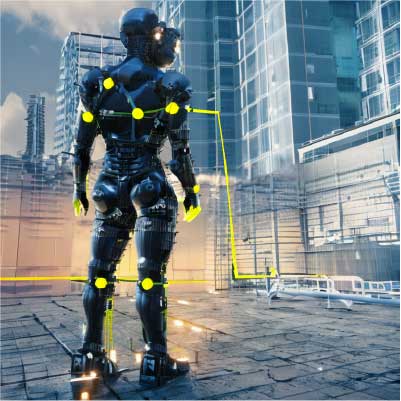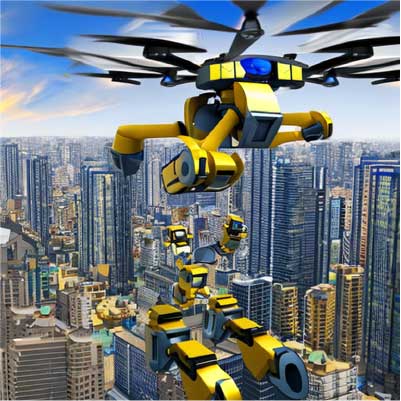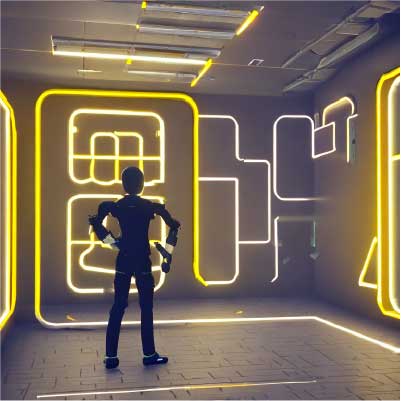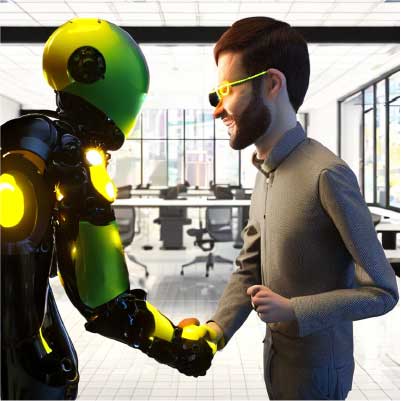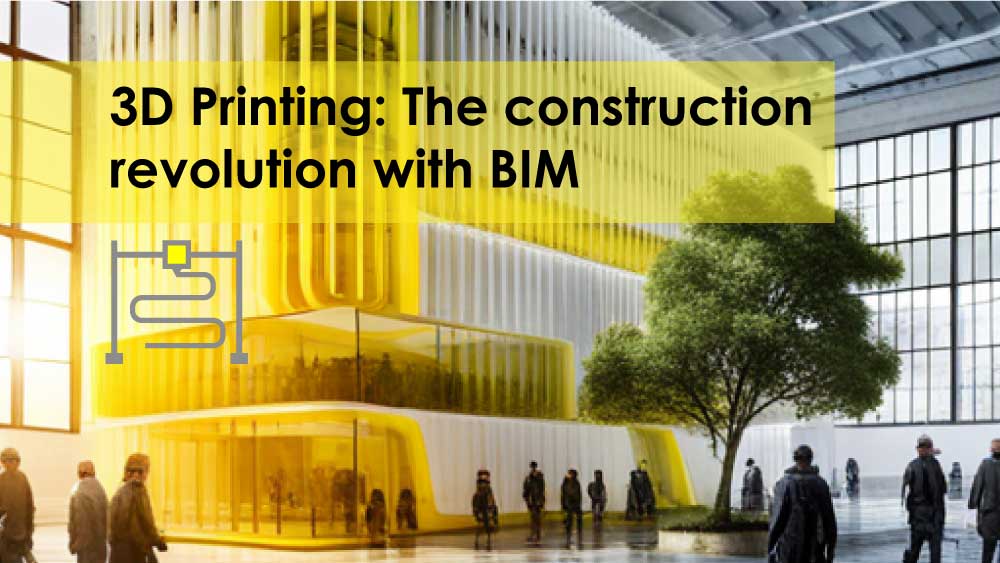Paving the way for automation
The rapid advance of technology has revolutionized various sectors, and the construction industry is no exception. Recently, Artificial Intelligence (AI) has become the buzzword in the construction industry. AI not only streamlines the construction process, but also improves efficiency and productivity.
How AI is disrupting the construction industry
AI has been a topic of conversation for quite some time, but its recent advances and availability have led to increased adoption in the construction industry. AI can help architects and engineers design more efficient and sustainable buildings by simulating and evaluating various design scenarios.
With the use of AI, the construction industry has the potential to achieve greater operational efficiency, reduced costs and improved quality results. The following are just a few examples of how AI is impacting construction and, as the technology continues to advance, we can expect to see even more benefits in the future.
Improved safety
With AI, construction companies can predict potential hazards, identify safety issues to mitigate and monitor worker behavior on a construction site. Through algorithms, this can be done on a small or large scale, analyzing data for a single site, communities or the entire city. This feature is closely related to portable devices that can help monitor vital signs and alert medical personnel in the event of an emergency.
Example: Twenty20® Solutions
Design and Planning
AI has become increasingly useful in facilitating building design and construction. This technology allows architects to optimize project designs by generating images through text prompts that can facilitate communication with clients. AI can now help professionals create designs by analyzing data and suggesting improvements that meet structural, zoning and client requirements. AI algorithms can use data to optimize project design, streamline scheduling and deliver modular designs that increase productivity and improve efficiency.
Example: Finch
Transforming the supply chain
By using automated inventory tracking, AI can predict and prevent material shortages, reducing waste and downtime on job sites. In addition, AI can assist in supply chain management, optimizing the flow of resources and materials to ensure they reach their destination in a timely and cost-effective manner. This technology provides real-time updates, allowing project managers to adapt quickly to potential problems and reduce the risk of project delays.
As a result, AI has the potential to significantly improve the efficiency of construction projects and reduce the likelihood of costly errors or production delays. By leveraging these AI tools, construction professionals can optimize their operations and achieve greater productivity.
Example: Peak AI Ltd.
Efficient project management
AI has the ability to transform project management by providing tools that can assess risks, monitor schedules and detect inefficiencies early in the project cycle. Through real-time information sharing, AI can help streamline decision-making processes, leading to greater project agility and fewer delays. An example of an AI technique that can be used in project management is reinforcement learning, which allows algorithms to learn from trial and error.
By leveraging these technologies, project managers can optimize resource allocation and risk management, avoid bottlenecks and facilitate collaboration among team members. Ultimately, AI-driven project management can help organizations deliver projects more efficiently, effectively and profitably, which is essential for construction firms and offices.
Example: ALICE Technologies Inc.
An even stronger BIM
The use of AI in BIM is very beneficial in the construction industry. AI can provide data-driven information and automate repetitive tasks to optimize the design process and improve the efficiency of the BIM infrastructure. For example, AI can help identify design inefficiencies and potential errors in BIM models through the use of machine learning algorithms. By enriching BIM models with explicit information, AI can improve the accuracy and completeness of the data being used, leading to better performance results. In addition, AI-driven project management tools can help manage risks, monitor timelines and accelerate decision-making processes.
Example: Hypar
How does this affect my job?
AI is becoming increasingly relevant in numerous fields, including the construction industry. While some people may be concerned that AI-powered tools could replace human workers, this is not entirely true. AI is not intended to take jobs away from people, but to increase their skills, making them more efficient and productive. Artificial intelligence technology can perform a variety of routine physical labor activities more efficiently and at a lower cost than human labor. However, it also requires a team of skilled workers to operate and maintain it.
Therefore, the construction industry must adopt AI-driven tools to stay competitive, increase efficiency and improve profitability. The use of AI can automate tasks, provide data-driven insights and optimize the decision-making process, enabling organizations to remain agile and responsive in the rapidly changing business environment. Ultimately, AI will create new opportunities for human workers to leverage their skills and creativity, leading to better outcomes for everyone involved in the construction industry.
This year, construction technology is advancing at a breakneck pace and you don’t want to be left behind. Be proactive and test or incorporate AI into work processes for an efficient and lasting result.


